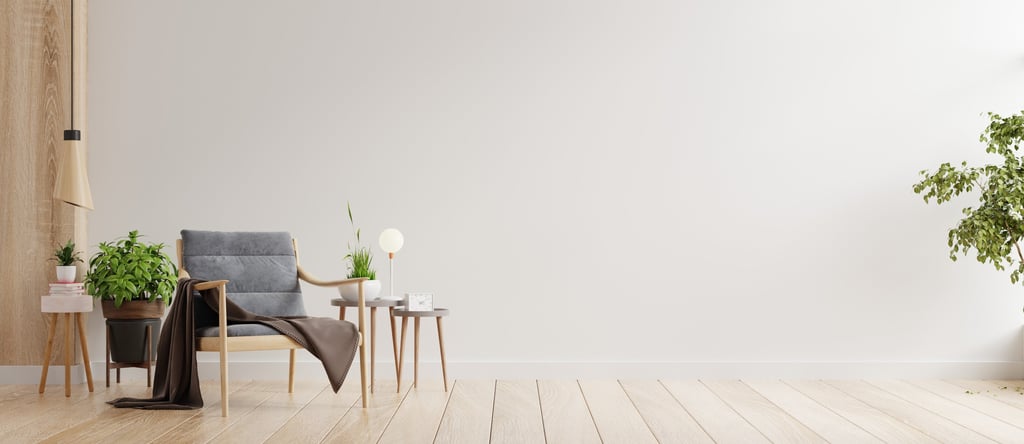The Psychology of Minimalism: Living with Less in a Consumer-Driven World
LIFESTYLE
LinkLeverage
9/29/20245 min read


Understanding Minimalism
Minimalism, at its core, is a lifestyle choice that emphasizes simplicity and intentionality in both physical possessions and mental engagement. Its origins can be traced back to various cultural and artistic movements throughout history, as well as philosophical principles advocating for simplicity, mindfulness, and the deliberate choice to prioritize essential experiences over material possessions. The minimalist movement gained significant traction in the late 20th and early 21st centuries, largely as a counter-response to the rampant consumerism that characterizes modern society.
Living a minimalist lifestyle involves stripping away the excess—be it clutter, obligations, or distractions—allowing individuals to focus on what truly matters to them. This approach not only encompasses the physical act of decluttering one's environment but also encompasses a psychological commitment to mental clarity. As people adopt minimalism, they often experience reduced cognitive overload, as they make conscious decisions to eliminate unnecessary distractions, leading to improved mental health and well-being.
Psychologically, minimalism advocates suggest that reducing physical possessions can positively influence one’s mental state. When individuals surround themselves with only that which is meaningful, they experience less stress and anxiety associated with overwhelming choices and clutter. This enhanced sense of control can foster a deeper engagement with personal values and priorities, thereby enhancing overall happiness. In contrast to consumer culture, which often encourages accumulation and relentless desire for more, minimalism advocates for contentment through simplicity and the appreciation of life’s inherent value.
The increasing appeal of minimalism can be understood as a reaction to the overconsumption and disposability that has become endemic in contemporary society. Many individuals are drawn to this approach not just for aesthetic simplicity, but for the psychological benefits it confers—returning to a state of mindfulness and re-examining what truly enriches their lives.
The Benefits of a Minimalist Lifestyle
Embracing a minimalist lifestyle can yield numerous tangible and psychological benefits, significantly transforming one’s overall well-being. One notable advantage is increased clarity. By reducing physical clutter, individuals often find that their mental clarity improves as well. A streamlined environment fosters a serene atmosphere that can enhance decision-making abilities and creativity. As individuals engage in minimalism, they frequently report feeling more organized and focused, allowing them to prioritize what truly matters to them.
Another key benefit of minimalism is stress reduction. Studies have shown that a cluttered environment can contribute to higher levels of anxiety, diverting attention away from essential tasks and increasing feelings of overwhelm. By adopting a simpler lifestyle, individuals are likely to experience a considerable decrease in stress levels. The simplicity found in minimalism allows them to concentrate on their emotional health, leading to an increase in overall satisfaction with life.
Minimalism also opens up opportunities for deeper relationships. By reallocating time and energy away from material possessions, individuals can cultivate more meaningful connections with loved ones. This lifestyle encourages quality interactions over quantity, allowing for more intentional and fulfilling social experiences. Many minimalists report feeling a greater sense of connection with others as they share experiences rather than focusing on acquiring possessions.
Real-life testimonials abound, illustrating the transformative effects of a minimalist approach. For instance, one individual recounted how shedding excess belongings led to newfound freedom and mindfulness in their daily life. Additionally, studies indicate that people practicing minimalism often exhibit heightened resilience to distractions, enabling them to navigate the complexities of a consumer-driven society more effectively.
In light of these benefits, it becomes evident that adopting a minimalist lifestyle not only enhances personal clarity and reduces stress but also fosters deeper, more meaningful relationships in a world laden with distractions.
Challenges and Misconceptions of Minimalism
Despite the numerous benefits associated with minimalism, many individuals face significant challenges and misconceptions as they seek to adopt this lifestyle. One prevalent misconception is the idea that minimalism equates to deprivation. This belief can deter individuals from exploring minimalism further, as they fear it requires them to forsake essential aspects of their lives. In reality, minimalism encourages individuals to assess their belongings critically and to prioritize what truly adds value to their lives, rather than simply reducing possessions for its own sake.
Another challenge that those pursuing a minimalist lifestyle often encounter is societal pressure to accumulate goods. In a consumer-driven world, society promotes the idea that happiness is obtained through ownership and material wealth. This creates a mental barrier, making it difficult for individuals to embrace minimalism fully. The contrast between personal values and societal expectations may lead to feelings of isolation or judgment from peers, further complicating one's journey towards living with less.
Furthermore, the fear of letting go of possessions poses a significant hurdle for many aspiring minimalists. Sentimental attachment can make it challenging to declutter, as individuals may struggle to part with items tied to memories, family history, or milestones. Learning to recognize the difference between emotional significance and practical utility is essential in overcoming this hurdle.
To navigate these complexities, individuals can adopt practical strategies such as setting clear intentions behind their minimalist journey, establishing decluttering timelines, and engaging in open discussions with supportive friends or family members. Additionally, cultivating a mindset that values experiences over possessions can assist in mitigating the impact of societal pressures and attitudes towards materialism. By addressing these challenges and misconceptions head-on, aspiring minimalists can pave a rewarding path towards a more liberated and meaningful lifestyle.
Practical Steps Toward Minimalism
Adopting a minimalist lifestyle entails a thoughtful transition toward simplicity, emphasizing intentional living and emotional well-being. To embark on this journey, individuals can begin with a series of actionable steps tailored to their unique circumstances. The initial phase involves decluttering, which can be systematically approached by assessing personal belongings. Setting aside dedicated time each week for this practice allows individuals to gradually evaluate items. The key principle in decluttering is the 'one-year rule'—if an item has not been used in the past year, it may be time to let it go. Donating, recycling, or selling unneeded possessions not only aids in achieving a minimalist environment but also contributes positively to the community.
Next, it is essential to distinguish between needs and wants. This can be facilitated through journaling or reflection exercises where individuals list items they currently own versus those they require to maintain a functional lifestyle. This process cultivates mindfulness by sharpening awareness of consumption habits. By recognizing what truly adds value to their lives, individuals can make informed decisions regarding future purchases. Implementing a waiting period for new acquisitions, such as a 30-day rule, fosters a thoughtful approach to consumption, allowing time to consider whether an item is genuinely necessary.
Creating a more intentional living space is equally vital in the pursuit of minimalism. This involves deliberately organizing spaces to enhance functionality and tranquility. Individuals can adopt a system of zoning, where specific areas are designated for particular activities, effectively reducing visual clutter. Moreover, integrating elements of nature, such as plants, can promote serenity in a minimalistic setting. Lastly, the practice of mindfulness and self-reflection should not be overlooked. Engaging in regular meditation or journaling encourages individuals to connect with their values and aspirations, ultimately leading to a personalized minimalist lifestyle that resonates with their goals.
